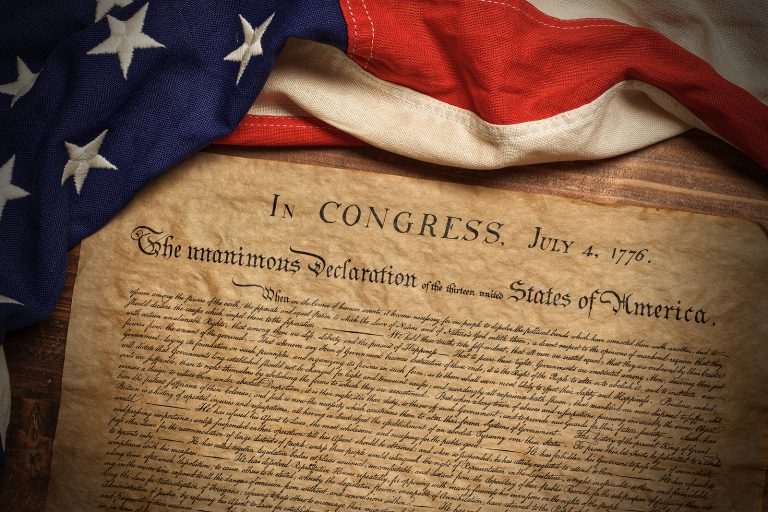
As we celebrated Independence Day this year, I reflected on independence and why it is worth celebrating. Of course, on July 4th we celebrate the independence of a small group of colonies from the rule of their mother country and King. But it was the independent spirit of those colonists that led them to seek that political and institutional independence. An independent nation could not have been born without that spirit of independence.
Independent Roots
The roots of independence started with those brave souls who ventured across a vast ocean to settle a foreign wilderness. Though subjects of Kings, they had no assistance from the physically distant crown to ensure their survival. They learned that their survival depended upon their own self-sufficiency and actions for which they were personally responsible.
Forming communities required working together. Being so far removed from the mother country, they learned to govern themselves by necessity. It was quite some time before armies were provided for their defense, and the cost of such defense proved to be more than they were willing to bear. Their desire for self-determination and freedom outweighed the dangers that would be faced.
As things developed, leaders naturally sprung up from the masses, based on the strength of their characters, not appointed from above because of noble birth or the favor of Kings. It is because of this strength, courage and spirit, that independence from Britain seemed necessary and worth the long hard struggle.
Independent Individuals
At the heart of an independent nation are independent individuals. Independence implies a dependence on self rather than dependence on others or external conditions. It involves self-reliance and self-sufficiency – the ability to use resources, talents and abilities to meet one’s own needs. It includes a desire for self-determination, using agency to choose how to go about meeting those needs and how to personally pursue happiness. This is true liberty.
Accountable Independence
The exercise of liberty includes accountability. There are consequences of choices. Truly independent people take responsibility for the outcome of their choices, good or bad. Blaming implies dependence – someone or something else had control, we are powerless against whatever forces. Independent people not only take responsibility for the outcome of choices, but also take responsibility to correct errors and improve. Feelings of entitlement, expecting guarantees or wanting someone to step in and make everything right are signs of dependence.
Accountability raises the question of accountability to whom. Some may think independence means that one is only accountable to self. Yet, we live in a society. Are we accountable to each other? If so, does this place some in a position of control over others, creating dependence? Are we accountable to government? What does that mean in terms of our liberty and independence?
If we recognize the source of our inalienable rights and the resources, talents and abilities that we independently choose to use to meet needs, improve lives and be happy, then we will recognize that we are ultimately accountable to God. We will recognize the divine author of liberty and see in our independence as individual citizens our actual dependence upon God.
Independent Thought
Independent people think for themselves. In the formative days of our nation there was much more variety in viewpoints and perspectives than we might realize. There was no single official viewpoint or narrative that citizens were compelled to believe. Newspapers printed vastly different opinions and views of events. There were heated arguments in government and public gatherings.
Independent thinking people put in the effort to read and listen to various viewpoints and then come to their own conclusions. Freedom of speech was included in our Bill of Rights so that everyone could be heard, but it requires individual consideration of all perspectives to maintain real independence of thought.
